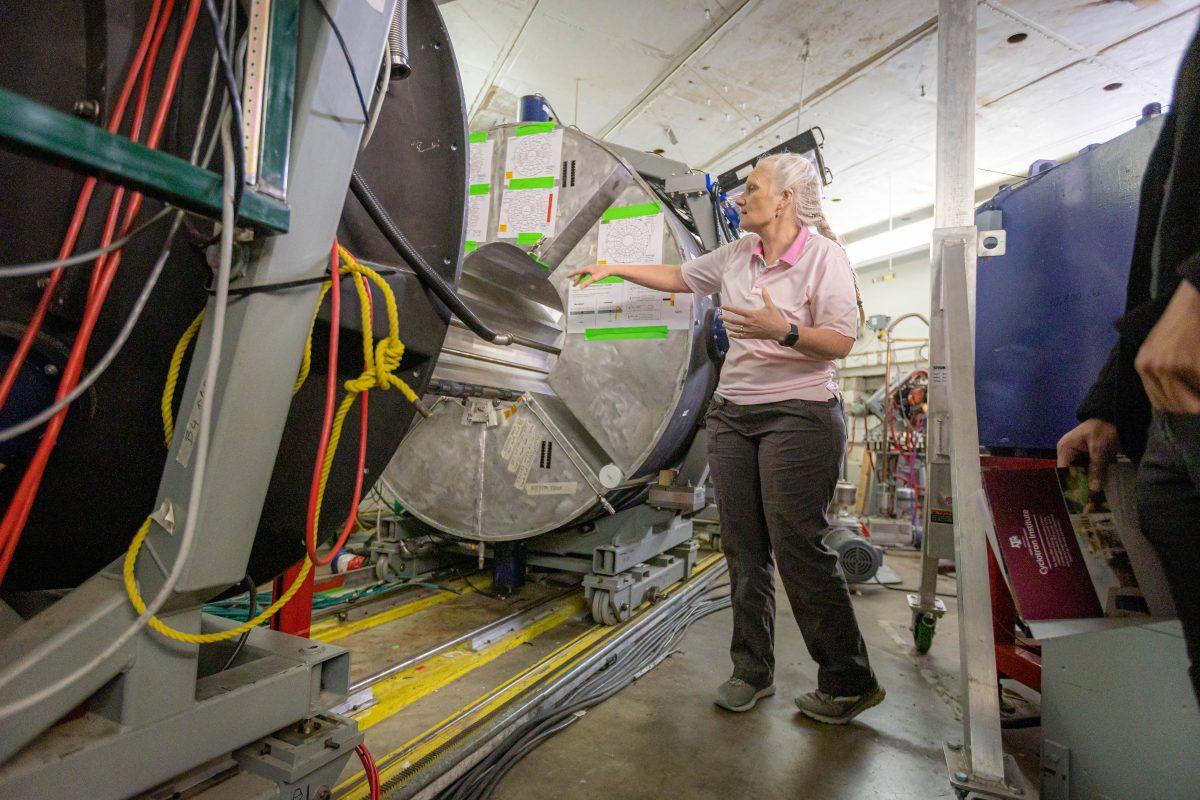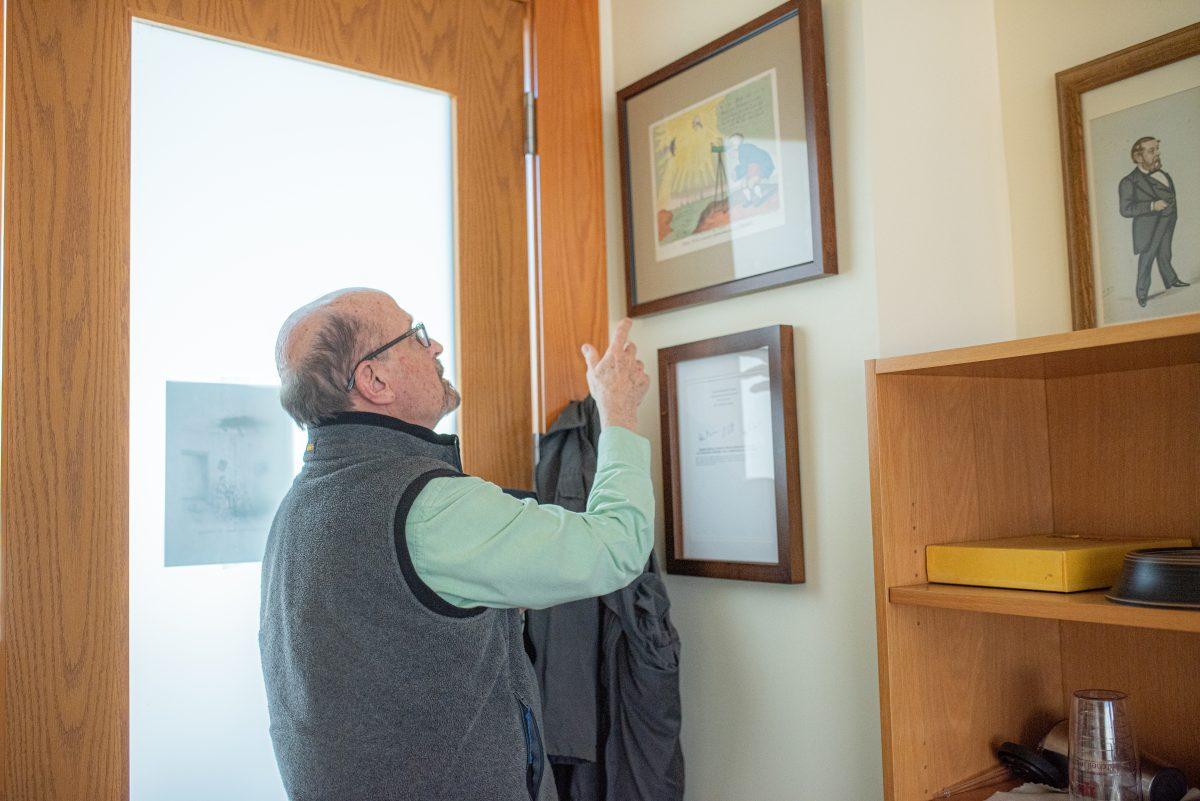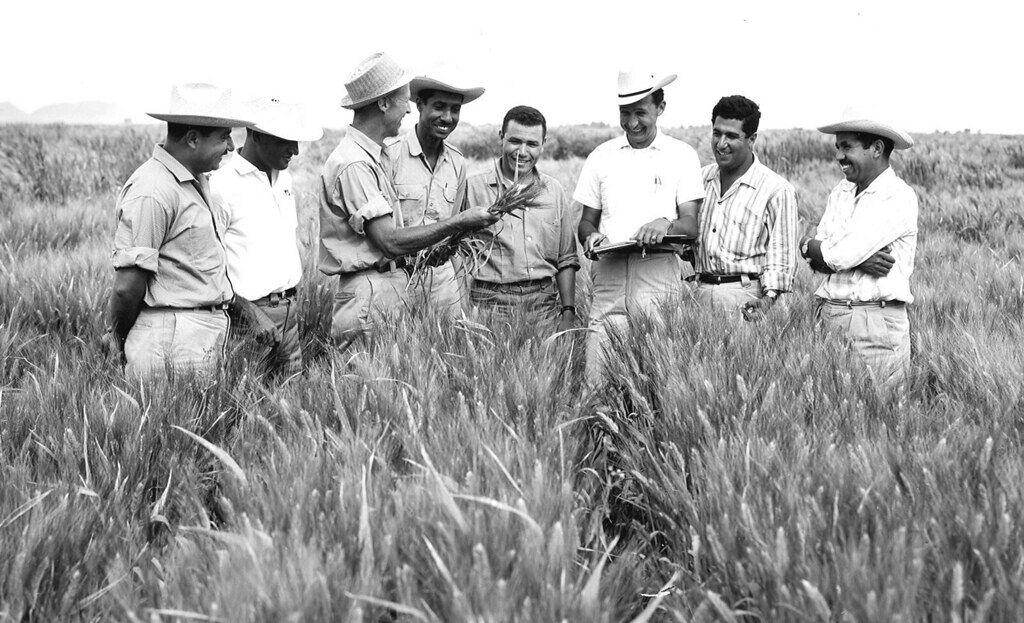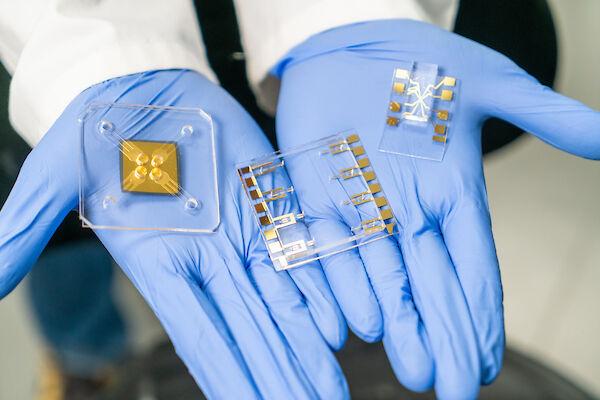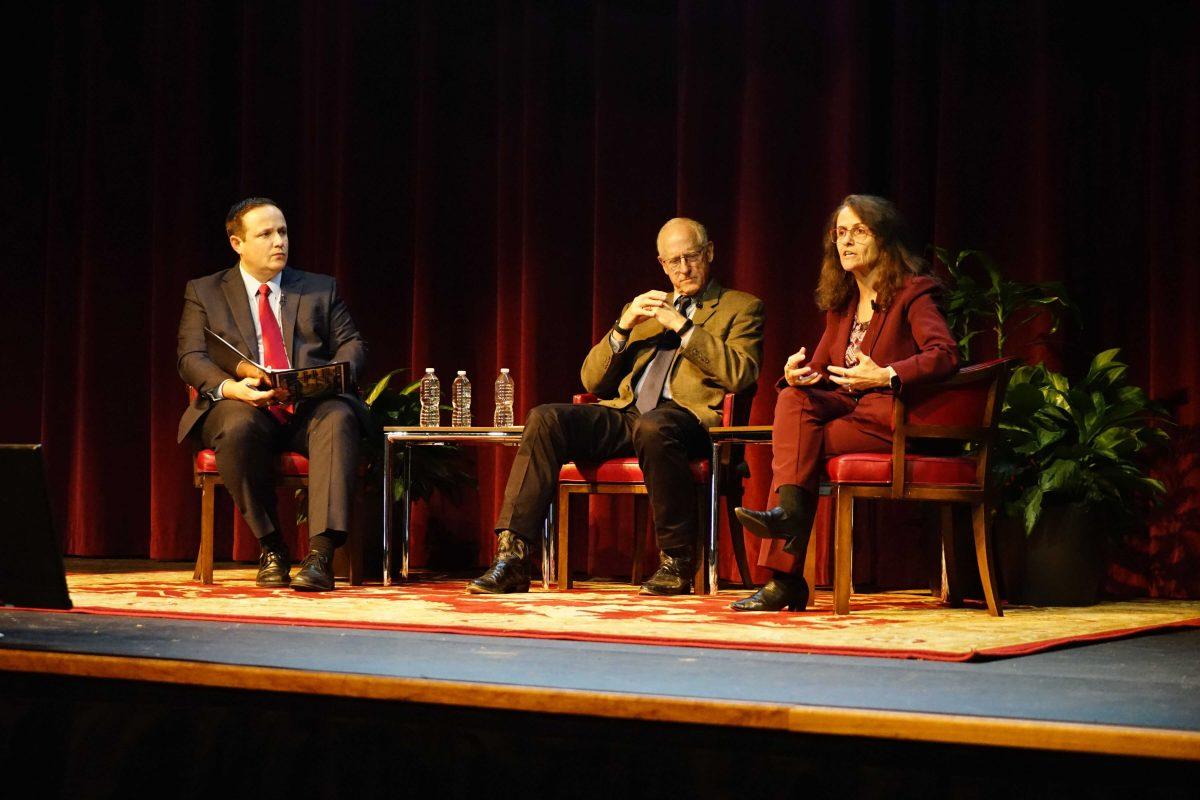In 1982, American theoretical physicist Richard Feynman theorized that a new type of computer would be needed to simulate the behavior of quantum particles. Over 30 years later, professors at Texas A&M are working to make the quantum computer a reality.
Eric Rowell, math professor, is one of four professors nationwide to in a $1.3 million National Science Foundation funded project to progress the field of quantum computing. Rowell’s background in algebra will help the team come up with a model for storing information and ensuring resistance towards errors.
“The system for computation uses some fundamental theories in physics, like superposition and uncertainty principles,” Rowell said. “While it provides us with a unique way to store information in the form of ‘qubits,’ they still need to be accessed in the form of bits, causing them to be corrupted.”
Rowell said he began learning about quantum computers while doing his postdoctoral research at Indiana University.
“I worked in a field called topological computation,” Rowell said. “Which as it turns out, is as essential to the new quantum computer they are trying to build as programming language is essential for a classical computer.”
Rowell’s work on quantum computers spans a total of 15 years. On Dec. 1, 2017, Rowell was awarded a grant from the National Science Foundation, which will allow him to collaborate with the other aforementioned professors to advance his research.
“We decided to get the four best people available in their respective fields,” Rowell said. “We have condensed matter physicist Xiao-Gang Wen from MIT, co-principal investigator Michael Friedman, fundamental algebra expert Richard Ng from LSU and my former Ph.D. student Paul Bruillard.”
Rowell said he faced an uphill task while collaborating with the other professors. While a large body of knowledge was involved, Rowell said he felt it was difficult to get everyone on the same page. However, he said that collaborating with them proved helpful.
“Along with Richard Ng and Paul Bruillard, I was able to prove a theory about classification models in 2013 that lead to the acceptance of a mathematical model as a viable one for quantum computing,” Rowell said. “It is true that hours of work behind closed doors lead to breakthroughs, but, keeping that door open for people from another department helps too. I think it is very important to collaborate.”
Rowell said the current goal he and his colleagues have is trying to put the global property of quantum states to good use and make memories resistant to corruption.
“Imagine a doughnut, poking at it will not change the fact that it is a doughnut,” Rowell said. “Similarly, we are attempting to use quantum entanglements, or knots, as a way of representing and storing data securely since these knots, like the doughnuts, will not experience much physical change by someone poking at it or throwing it around — this is tolerance of data corruption.”
Rowell said there is a lot of research on this topic, as there are at least three ways to approach a quantum computer: A topological version, a quantum circuit model and the D-Wave machine. Rowell added that he does not expect there to be a topological qubit in the coming years, however.
“The CEO of Microsoft met with a panel of four physicists in Orlando last October to discuss possible timelines for such announcements,” Rowell said. “Exciting times.”
Andreas Klappenecker, computer science professor, said he has been working on quantum computers ever since his doctoral advisor began research in the field.
“When I started working on quantum computing in the year 2000, we had no idea if we would ever be able to actually build one,” Klappenecker said. “Now we find ourselves asking if we can scale the few qubits we have into thousands of qubits.”
Klappenecker said the fundamental theoretical results motive him to follow up with the experimental results. He added that his primary role in the project is to make error correction feasible.
“Every computation on a quantum computer comes with its own degree of error,” Klappenecker said. “We use what is known as the threshold theorem to decide what amount of error is acceptable and what amount is considered a serious impediment to effective results.”
According to Klappenecker, a hybrid of classical and quantum computing algorithms are the best bet to advancing this research, but it’s worth the time to explore new methods to ensure efficient transmission and exchange of information between the two types of computers.
Most of the worlds online transaction depend on algorithms that will need to be redone, as they can be easily broken into when a quantum computer becomes operational, Klappenecker said.
“Post-quantum cryptography is a very important field of research right now,” Klappenecker said. “Banking will have to change a lot of things, quickly. Governments will have to guard their secrets more carefully too.”
Julia Plavnik, visiting professor of mathematics and member of Rowell’s team, said she appreciates the opportunity to work on the quantum computer project.
“Professor Rowell is knowledgeable on multiple topics and it has been a great learning experience so far,” Plavnik said. “We also organize multiple conferences every year and that keeps us very busy, but, we are getting a lot of people to listen to us, so that’s good.”
The quest for a quantum computer
February 5, 2018
Donate to The Battalion
Your donation will support the student journalists of Texas A&M University - College Station. Your contribution will allow us to purchase equipment and cover our annual website hosting costs.

















